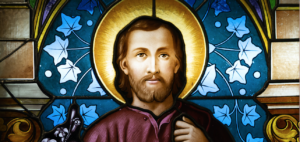
A Universal Church
When many of us hear the term ‘catholic,’ we often think of the Catholic Church. In fact, each Sunday you might recall that we say this word when we pray the Creed: “I believe in one, holy, catholic and apostolic Church.” Traditionally, we spoke of these qualities as ‘marks’ of the Church. The words describe what we believe the Church to be. Yet what do we mean when we say the Church is catholic?
![]()
Catholic is a word that comes from a Greek word meaning ‘universal.’ We believe that the Church is universal, broad and far-reaching. This belief of ours is deeply rooted in Jesus’ command to “go therefore and make disciples of all nations.” (Matthew 28:19) The beauty of the Church being catholic is found in the rich diversity that makes up the Church. The Church teaches and celebrates the Gospel in ways that are meaningful to people. Thus, we find the Church to be made up of 23 different rites, or spiritual, liturgical and theological traditions. In Canada, we are familiar with many of these different rites, such as the Ukrainian Catholic Church.
Today, however, one of the many other rites of the Church is in the news in Canada. Pope Benedict XVI appointed Fr. Marwan Tabet, M.L. as bishop of the eparchy, or diocese, of Saint-Maron de Montreal. This is great news for our Maronite Catholic friends who will soon celebrate the ordination of Fr. Tabet. The Maronite rite is an ancient rite of the Catholic Church with a history that extends back to St. Maron, a hermit who died in 410. The Maronite liturgy, which continues to use Aramaic, the language of spoken by Jesus, is very rich and beautiful. Many of the hymns and prayers are poetic and come from the Fathers of the Church, in particular St. Ephrem. Another trait of the Maronite church is that it is the only Eastern Christian church never to have separated from the Bishop of Rome.
We celebrate then, as a universal Church, with our Maronite sisters and brothers the good news they received. May God continue to bring about the good work begun in them through Jesus Christ.
-Don Beyers

